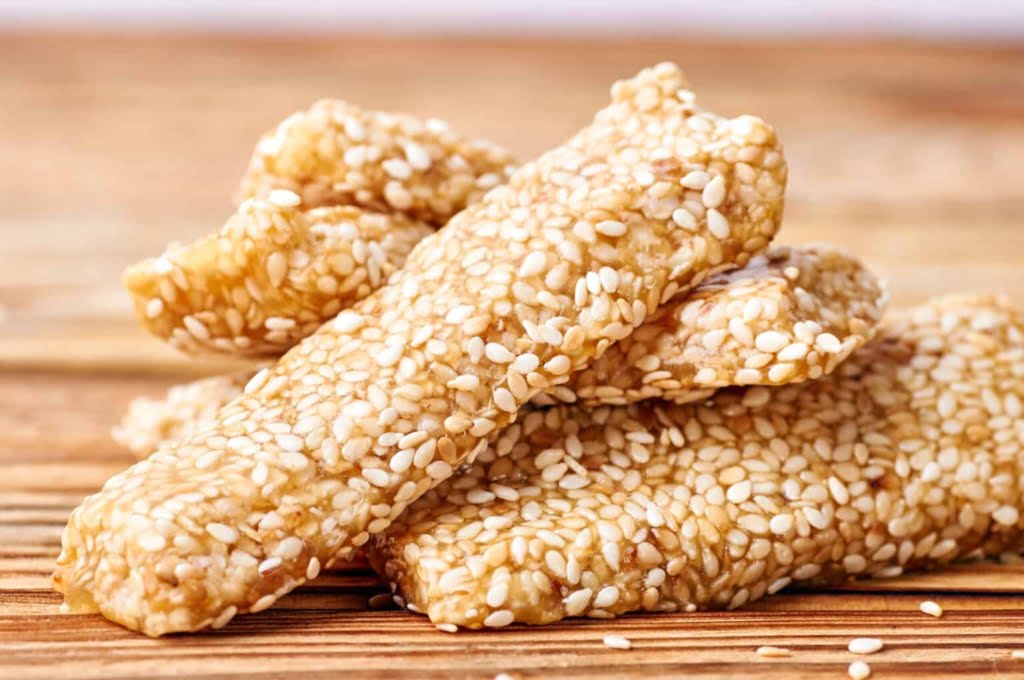In recent years, vegan and vegetarian diets have gained significant popularity due to their health benefits, ethical considerations, and environmental sustainability. Central to these diets is the careful selection of plant-based foods that provide the necessary nutrients often derived from animal products. One such versatile and nutrient-dense ingredient is sesame seeds. These tiny seeds pack a powerful punch, offering a wealth of essential nutrients that make them a valuable addition to both vegan and vegetarian diets.
Nutritional Powerhouse
Sesame seeds are an excellent source of a variety of essential nutrients. They contain healthy fats, protein, fiber, and a range of vitamins and minerals, all crucial for maintaining a balanced diet. The following are some of the key nutrients found in sesame seeds:
- Protein: Vegans and vegetarians often rely on plant-based protein sources, and sesame seeds are a great option. Although not a complete protein, meaning they lack some essential amino acids, they can be combined with other plant-based proteins to meet dietary needs. For example, pairing sesame seeds with legumes or grains provides a balanced amino acid profile.
- Healthy Fats: Sesame seeds are rich in unsaturated fats, particularly omega-6 fatty acids. These fats play an important role in heart health, supporting brain function, and reducing inflammation. The seeds also contain a notable amount of sesamin and sesamolin, lignans that may help lower cholesterol levels.
- Calcium: Calcium is often a concern in vegan diets due to the absence of dairy products. Sesame seeds, especially in their unhulled form, are an excellent plant-based source of calcium. This is critical for bone health, especially for individuals who avoid animal-derived calcium sources.
- Iron: Iron deficiency is a common concern among vegans and vegetarians, as plant-based iron (non-heme iron) is less easily absorbed by the body than the heme iron found in animal products. Sesame seeds contain a good amount of iron, which can help meet daily needs when consumed alongside foods rich in vitamin C to enhance absorption.
- Fiber: Dietary fiber is essential for digestive health and helps to regulate blood sugar levels. Sesame seeds are a good source of fiber, promoting gut health and aiding in digestion, which is particularly beneficial in plant-based diets that often focus on high-fiber foods.
- B Vitamins: Sesame seeds are rich in B vitamins, including B1 (thiamine), B3 (niacin), and B6. These vitamins play an important role in energy production, metabolism, and overall cell function.
- Magnesium, Zinc, and Phosphorus: These essential minerals support various bodily functions. Magnesium aids in muscle relaxation and nerve function, zinc is important for immune health, and phosphorus is critical for bone and teeth health.
Benefits for Vegans and Vegetarians
Incorporating sesame seeds into a vegan or vegetarian diet offers numerous benefits beyond their nutritional content. Some of the key advantages include:
- Versatility: Sesame seeds can be used in a variety of ways in both cooking and baking. They can be sprinkled on salads, stirred into smoothies, added to bread dough, or used as a topping for stir-fries. Tahini, a paste made from ground sesame seeds, is a staple in many vegan dishes like hummus and dressings, providing both flavor and nutrition.
- Energy Boost: Due to their high-calorie content, sesame seeds are an excellent source of energy, especially in a plant-based diet that might otherwise be low in calorie-dense foods. This makes them a valuable ingredient for people with higher energy needs, such as athletes or individuals with active lifestyles.
- Antioxidants and Anti-inflammatory Properties: The antioxidants in sesame seeds, particularly the lignans (sesamin and sesamolin), are known for their anti-inflammatory properties. This can help reduce inflammation in the body, which is a concern in various chronic diseases.
- Bone Health: As a source of calcium, phosphorus, and magnesium, sesame seeds contribute to strong bones and teeth. This is particularly beneficial for vegans and vegetarians who do not consume dairy products, which are the most common source of calcium in omnivorous diets.
- Heart Health: The healthy fats in sesame seeds, along with their antioxidant content, contribute to heart health by helping to reduce bad cholesterol levels (LDL) and improve overall cholesterol balance. The presence of potassium also helps in regulating blood pressure.
- Aid in Digestive Health: Sesame seeds’ fiber content helps maintain a healthy digestive system. Regular consumption can promote bowel regularity and help in managing conditions like constipation, which is important for overall gastrointestinal health.

Creative Ways to Incorporate Sesame Seeds in Plant-Based Diets
One of the great things about sesame seeds is their versatility. Whether whole, toasted, or ground into a paste, they can enhance the flavor and nutritional profile of many vegan and vegetarian dishes. Here are some ways to use them:
- Tahini-based sauces and dressings: Use tahini in sauces, dips, and dressings for salads or roasted vegetables. It adds a creamy texture and nutty flavor without the need for dairy.
- Sprinkle on salads and stir-fries: Toasted sesame seeds can be sprinkled on top of salads, grain bowls, or stir-fries to add a crunchy texture and earthy taste.
- Energy balls and bars: Combine sesame seeds with dried fruits, oats, and nuts to create energy balls or homemade granola bars. These make great on-the-go snacks for those following a plant-based lifestyle.
- Sesame oil: Cold-pressed sesame oil can be used in dressings or low-heat cooking. Its strong, nutty flavor enhances the taste of many dishes.
- Sesame-encrusted tofu or tempeh: Coat tofu or tempeh in sesame seeds before baking or pan-frying for a crispy, flavorful crust.
- Sesame bread or crackers: Bake sesame seeds into homemade bread or crackers to give them a delightful crunch and a nutritional boost.
Conclusion
Sesame seeds are more than just a garnish—they are a nutrient-dense superfood that plays a crucial role in vegan and vegetarian diets. With their rich content of protein, healthy fats, calcium, iron, and other essential nutrients, they can help fill the nutritional gaps often associated with plant-based eating. Their versatility makes them easy to incorporate into a wide variety of dishes, ensuring that those following a vegan or vegetarian diet can enjoy both flavorful and nutritious meals.
Ajigofarms is a reliable global agricultural purchase sourcing with profound expertise in the manufacturing, and exportation of food crops. We are tested, and trusted suppliers of all kinds of cash crops and food crops. Our constant supply chain solution makes exporting easy, quick, and safe, we are identified with timeliness and meeting up with deadlines. Regardless of the region you are located in worldwide, you can reliably order your Agric products and be rest assured of successful delivery.




